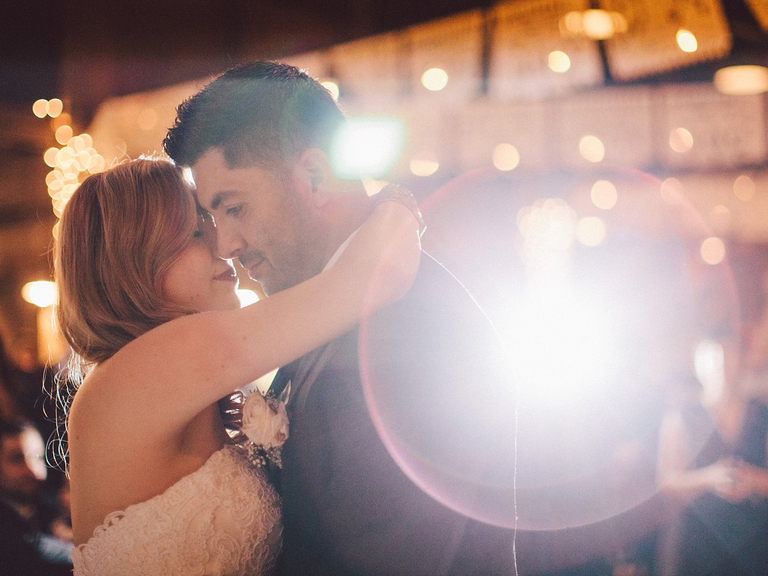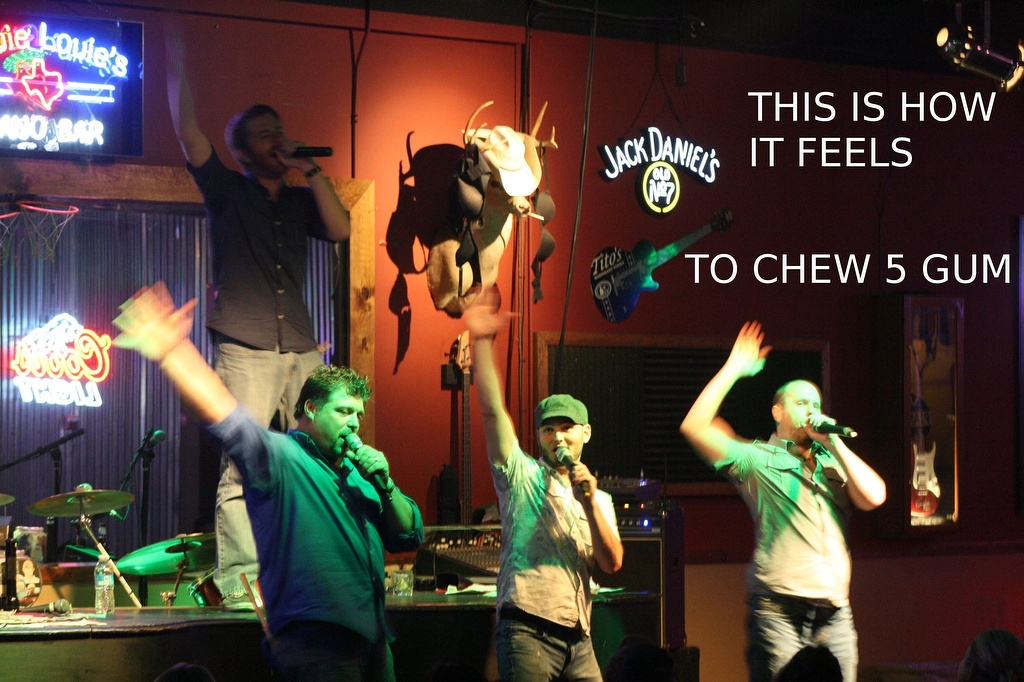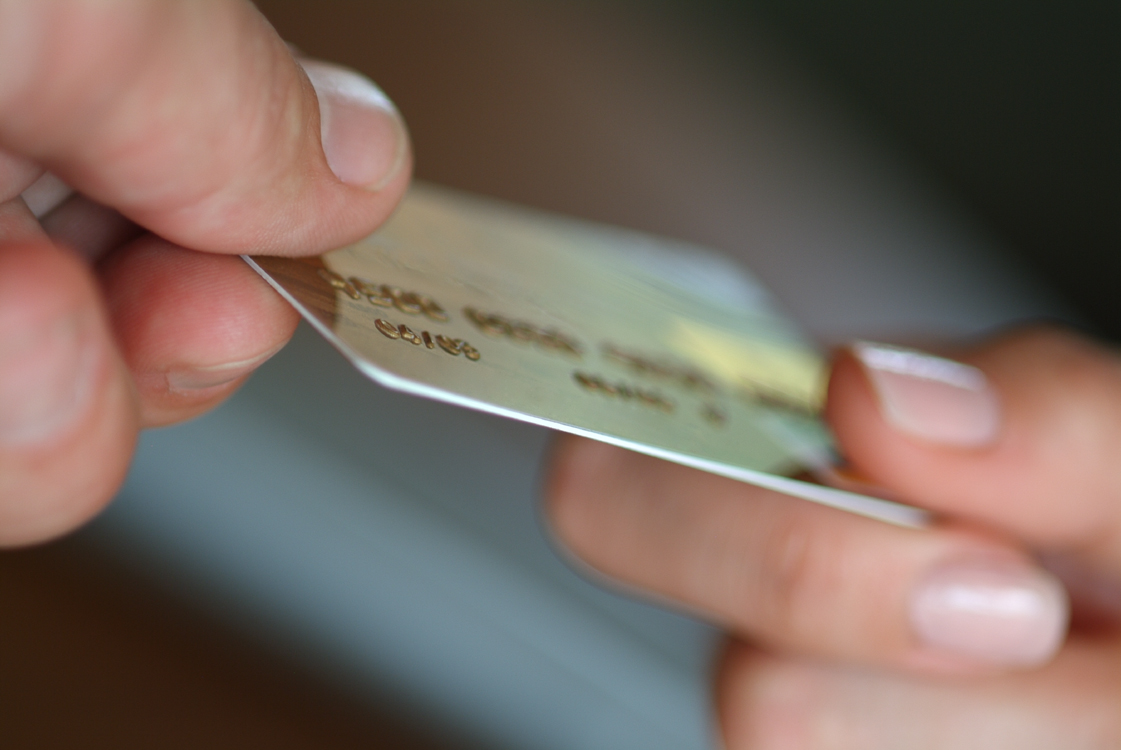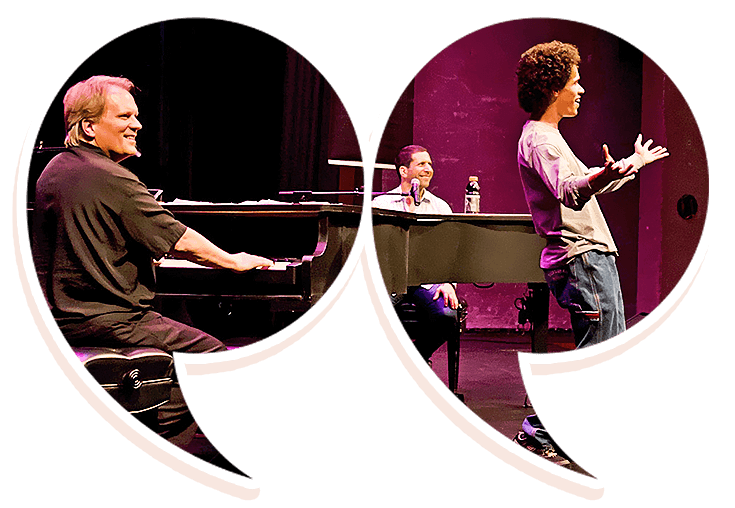[NOTE: I found this on Reddit’s r/piano subreddit. An anonymous piano player posted this as an AMA. I believe it was written by Devin C. in TX. I loved his breakdown of the gig and wanted to repost here. -eddie]
I am a dueling piano player at a dueling piano bar in Texas. I’d like to talk to you about what that means, both for myself and my audience. I’d also like to talk about how to play piano properly in this environment. I’ll give you a little bit of background on myself first, then we’ll dive into the industry a bit.
I didn’t start playing piano seriously until I got to college in Houston. I was a tuba player throughout middle school and high school, but I always played the piano on the side, mostly as a tool for my compositions. As I became a better musician, I became a better pianist, even though I was (and still am) completely self taught. I started playing coffee shop jazz gigs, got in good with a very talented and gainfully employed bassist, and he started hiring me for paying gigs, eventually leading to me putting myself through college just playing jazz. After graduating, I moved to Beaumont briefly for a teaching job, then moved back to Houston and served coffee because all of my gigs had been taken by other players.
After about a year of that, I got a call from Howl at the Moon, a dueling piano bar company with locations nationwide, asking me if I’d like to audition. I accepted, and went on a wednesday to play the 2 songs I knew that weren’t jazz, The Joker and Family Tradition. They gave me more songs to learn, and I started going twice a week. After a couple of months, I auditioned for a different piano bar, Pete’s, which had just opened. They liked me enough to start paying me a small amount to train and fill in for players taking vacation time, which I did for a year before going to another company, Louie Louie’s, where I have been playing for over 4 years.
If you have never been to a dueling piano bar, I’ll try to paint a picture for you. Let’s say you come in on a saturday night. You come in, pay a small cover fee, find a place to sit, order your drink from a waitress, and you look at the stage. On stage, there are two piano shells, a drumset, a guitar, and a bass. Some clubs will have other instruments as well; for example, we have two saxophones, two trumpets, and an acoustic guitar in addition to the aforementioned instruments. Each piano shell has a weighted 88-key digital piano inside, in our case a Yamaha CP-33.
When the pianists being playing, we sit across the stage from one another, and we play hit songs from the past 60 or so years. We basically use the piano to try and emulate the entire band, our left hand being the bass line, and our right being a combination of the snare drum and guitar. The pianists take turns playing and singing songs, taking requests, doing special things for birthday and bachelorette parties, anniversaries, etc. Audience members are heavily encouraged to tip when they make a request, either with money or drinks. We do this for an hour, then another duo of pianists comes up to give the guys a break, at which point we’ll do a couple of songs as a band, with bass, drums, guitar, vocal harmony, the works. The new pianists take over, rinse, and repeat.
The point of being a dueling pianist, more than anything else, is getting the audience to sing along. When we get to a part of a song that we think people will sing, we’ll give a simple singing command and leave a gap in the music, a “singing hole.” The more they sing, the better the night goes. Some songs only have a few tidbits of sing-along (like Sweet Child of Mine), while others are one giant singing hole all the way through (like Friends in Low Places). The point of sing along is two fold. One, it fulfills the same type of fun that a karaoke bar would, but in a large group, meaning no one really cares how good you sing as long as you’re loud and having a good time. Two, the more people sing, the thirstier they get, and the more alcohol they drink, meaning better sales and better tips.
Another important point of being a dueling pianist is getting people up on stage for their celebrations, which we call a “call down.” Call downs can be a single person or a group of people (called a “cluster”), and the point is to embarrass them, but all in good fun. For instance, we might get a girl up to the piano on her birthday and sing her “Why Don’t We Get Drunk and Screw,” or a group of people celebrating graduating from nursing school and make them all do the Hokey Pokey. If we have a wedding anniversary, we’ll turn down the lights and let them slow dance to a sweet song, peppered with cleverly dirty word substitutions. This is especially why people like to bring their friends or family to the piano bar, especially with bachelorette parties, who tend to get pretty rowdy here in Texas.
Playing the piano and singing is the musical bread and butter of the job, although each player also has to learn to play drums and bass for the change overs. The piano playing has to be in good time and have a groove. The left hand will generally play heavy and legato, while the right hand plays accented and staccato. When there is a solo in the song, the guy who isn’t singing will play it, usually improvised but sometimes loosely based on the original in the recording. We often re-key songs to better fit our voice, but we try to stay close to the original key so the audience can sing along more comfortably.
In Texas, there are about 10 piano bars that are profitable, some with a rich history like Pete’s in Austin. Most major cities in the U.S. have at least one piano bar, and just about every casino in Las Vegas has one of their own (though sometimes they’re just solo piano). I highly recommend that every pianist who reads this at least go check one out, preferably on a weekend where the place is busy so that the musicians are doing what they’re trained to do best.
I hope this has been an informative look at a piano-based industry that brings live music to people across the country. I’d love to answer any questions that you guys have about me or the dueling piano bar industry. Thank you all for your time!
[Note: I found this on Reddit’s r/piano subreddit. An anonymous piano player posted this as an AMA. I believe it was written by Devin C. in TX. I loved his breakdown of the gig and wanted to repost here. -eddie]











